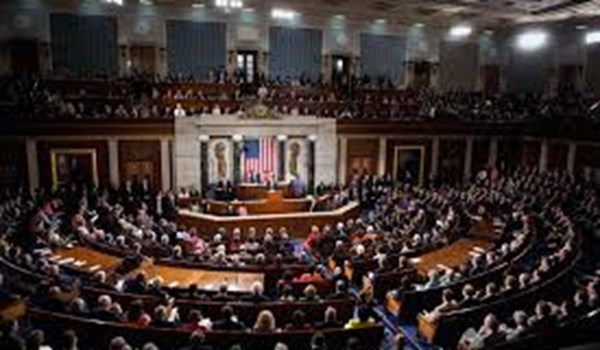
RNA - The Senate has voted to pass a bill to impose new sanctions on Iran for what it calls “non-nuclear” moves. Per usual, the legislation has been loudly endorsed by Israel lobbying group AIPAC, with Sen. Chuck Schumer also making clear the vote – which also put sanctions on Russia - is all about Iran, saying it proved “bipartisan unity” in support of Israel that they were moving to punish Iran so overwhelmingly.
The bill is largely an attempt to support Israel and sneak sanctions the US is obliged to lift from Iran as part of the nuclear deal. Those leading the charge are opponents of the P5+1 deal in the first place, which makes this vote tantamount to a violation of International Law and the nuclear treaty. The White House didn’t mention the Iran sanctions part of the bill, but did appear to be down on the Russia portion, saying they believe the existing slew of anti-Russia sanctions are already plenty.
For those who are still a bit caught off-guard, the following should explain everything:
Speaking to the House Foreign Affairs Committee on Wednesday, Secretary of State Rex Tillerson made clear that the Trump administration’s policy is one of trying to impose regime change on Iran. While Tillerson insisted that the specifics of administration policy on Iran are still under development, he did confirm that the goal remains regime change.
Tillerson said the US policy as it stands is to rely on “elements inside of Iran” who can be supported toward the end goal of regime change, with the hope it would be a “peaceful transition of that government.” That’s unlikely, as to the extent US officials have shown interest in supporting “elements” in Iran at all, it’s groups with long-standing links to terrorism like Jundollah and Mujahedin-e Khalq (MKO).
In other words, the new sanctions are never about Iran supporting terrorism or violating human rights. It’s the opposite; they are designed to discourage Iran from continuing its fight against terrorism and humanitarian campaign in Syria; stop the EU’s greater economic and security cooperation with Iran; and as Tillerson maintains, affect regime change by supporting terror proxies inside Iran.
As for the Russian portion, it suffices to state that the new measures that “toughen existing sanctions” and create new restrictions that target companies which support Russian “energy export pipelines” have nothing to do with Moscow’s alleged interference in American or European elections and everything to do with its successful military engagement against Washington’s terror proxies in Syria.
To substantiate, Germany and Austria have castigated the new sanctions that target Moscow’s Nord Stream 2 gas pipeline to Europe, describing them as an illegal threat to EU energy security. In a joint statement on Thursday, Berlin and Vienna said the amendment heralded a “new and very negative quality in European-American relations.”
It all adds to the conflicts between Washington, Tehran, Moscow and the EU that have developed since Donald Trump’s election, following the US president’s attacks on Iran and its nuclear deal with the West, Russia’s direct military involvement in Syria, Germany’s defense spending and trade surplus, and his criticisms of global economic cooperation with China.
In sum, the new sanctions vote against Iran and Russia tells you a lot about who those behind them really are. Their illegal measures have the prospect of creating such a marked array of conflicts the world over. The war-mongers on the Capitol Hill have real arms businesses with Israel and around the globe. They never shy away from creating potential conflicts, such as the one between Saudi Arabia and Qatar, both US allies and both homes to US military and naval bases – and all this on Donald Trump’s 71st birthday. They are free to scrap the nuclear deal. But they are wrong to assume that the EU will get on board or that they can hide their continuing internal political struggle on the Hill:
As maintained by the European Union, Iran has remained committed to its undertakings based on the 2015 nuclear deal with the world powers. This came after Iranian Foreign Minister Mohammad Javad Zarif and European Union's Foreign Policy Chief Federica Mogherini in a meeting in Oslo on Monday discussed the trend of the implementation of the Joint Comprehensive Plan of Action (JCPOA).
The two sides underlined the need for commitment of the parties to the JCPOA, making it clear that it’s business as usual for Iran; Iran won’t be “contained” in its Real War on Terror; and global trade with Iran will continue apace. Any doubters should ask Iraq and Syria or even Boeing which has just signed an agreement to sell 60 new passenger planes to Iran.
On the same token, Russia has climbed out of recession despite continuing Western sanctions. As maintained by President Vladimir Putin, the restriction regime has forced the country to “switch on our brains” to reduce dependence on energy exports. It equally makes clear that the Senate’s decision to impose new sanctions on Russia will only make the country stronger.
847/940